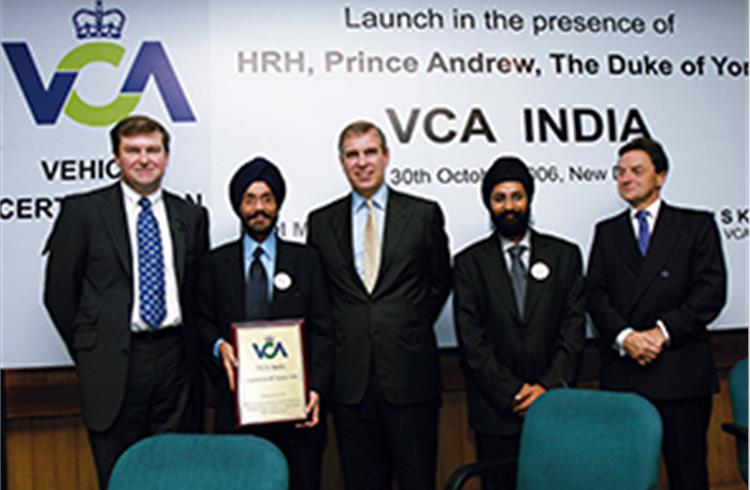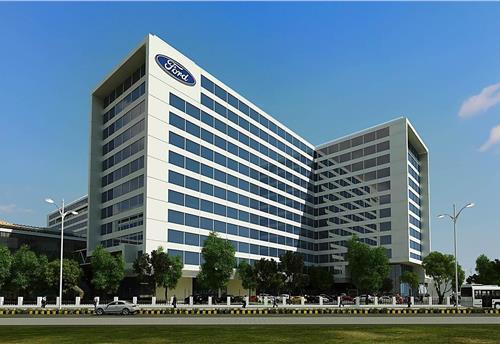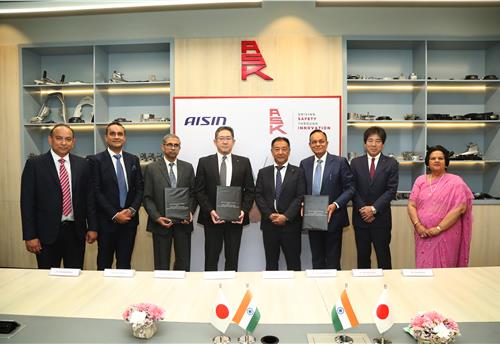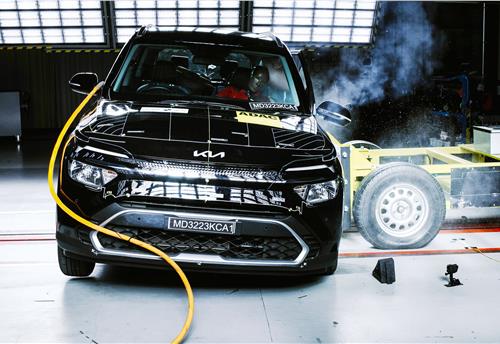VCA gets ready to kick off India innings
The tie-up with NATRIP will see huge cost benefits for the auto industry.
Though VCA is yet to decide how many of its engineers it will station in India, officials indicate that it will also recruit Indian engineers and train them both in the UK and in India. In the meantime, VCA will bring in engineers from the UK, Malaysia, Japan, China or wherever it has a presence to run its operations. Indeep S Madan will initially head the VCA engineering resource here in the country. A qualified powertrain engineer, he will also be trained on the environmental side. The first training programme for Madan starts in December this year with a project here in India. After setting up a centre in Delhi, VCA operations will extend its presence to Pune and then to Chennai or Bangalore. It has already begun actively recruiting engineers for Pune.
Now that a memorandum of understanding has been signed between the NATRIP Implementation Society of India and VCA, Indian automakers can get homologation certification for exports in India itself using NATRIP facilities. “Our skill is automotive engineering and type approval. It is the knowledge to use those facilities in the world of vehicle certification that we will hope to try in NATRIP and will place engineers to improve use. Our skill will be specifically how to use the equipment for type approval be it Europe, Japan or Australia. We can help fast track NATRIP engineers into the world of type approval and certification,” Paul Markwick, chief executive, VCA, UK, told Autocar Professional.
The number of VCA engineers coming in from abroad will depend on demand. "Clearly the NATRIP equipment is being set up and established which means there is some equipment already up and running now. There is a lot more yet to be procured and established. “We will supply the head count in order to support the requirement of a particular facility. While we train our engineers in India, we will back this up with experienced engineers from abroad too,” he says.
Andy Grimm, head of overseas development, VCA says that his agency’s intention is to have people on most if not all the NATRIP sites. This could take 12 to 24 months or more. VCA certification will cover all passenger cars, commercial vehicles, buses, agriculture vehicles, two-wheelers and components that will be exported from India. Where components are related to environment and safety, most need an approval of some kind. Examples are brake linings, tyres, mirrors etc.
VCA has been operating here for many years, though from the UK. “We have established clients but it has not been particularly intensive. There are approved testing stations other than VCA present in India. This will be the first testing and certification agency that will be located here,” says Markwick. Sending a prototype vehicle abroad for certification can be time consuming and expensive.
"These vehicles are very expensive and equally difficult to keep up to date as the engineering design progresses. One issue is the cost. If you are sending vehicles overseas to be tested you need one more to start earlier. Your certification arrives later. Every day the certification is delayed, the cost builds up because you cannot sell those vehicles,” he explains.
##### INDIA INNINGS
VCA is beginning its new innings in India with Tata Motors later this year where it will supply the complete package in terms of testing and certification. “Tatas do have some test facilities of their own and we are happy to work using them because our engineers will come in to supervise the testing,” Markwick says.
According to Surjit S Kalra, VCA India chairman, the agency can help Indian manufacturers understand what is required to get the certificate. “The earlier we start with a manufacturer, the better chances they have in achieving a timely certificate. When we are established here, they can call us any time. “Time is crucial and if you are unable to sell your vehicle, it will cost you millions of dollars. If your vehicles are in the pipeline to be exported, then you could have an expensive inventory,” he cautions.
In a recent meeting between the governments of India and the UK, it was agreed that the tie-up between NATRIP and VCA would be further explored by the two sides. VCA, according to Markwick, has called the driver vehicle operating group which covers everything related to drivers and vehicles. It can bring into India the knowledge of driver training, managing on-the-road enforcement for trucks, public service vehicles etc.
VCA has also developed capabilities in the UK which it thinks can help India quickly in terms of identifying vehicles that are overloaded. “We have a lot of capability in managing safety and data. We have a huge investment in the last five years on e-enablement so that citizens can manage their own data through the government portals and get better service from the government. So that capability is available now on the back of a meeting which the Indian minister had with his UK counterpart,” Markwick says.
VCA services will also be extended to the components industry. “Complete vehicle testing is only a small part of the process. There are 48 European directives or 48 areas of approval before you get to complete vehicle approval. And without having the right component test facility you get nowhere.
“For certain components, the manufacturer gets the certification in one’s own name. There are several levels of certification right through from the component to separate technical units. Replacement parts like brake linings, exhaust catalysts etc have to be certified separately. “As exports increase, more and more of such parts need certification. Not all territories require type approvals and some need self certification. Since we work in most territories worldwide, we know what is required to achieve such certification,” Grimm says.
VCA is a certified body for automotive industry standards like ISO 9001 and ISO TS 16949. It can look at quality processes and ensure that components are built under quality processes. For markets like Europe, the US, Japan or Australia, Indian manufacturers will need to have all this in place. “India will have to make sure, part of which we shall be responsible, that there is sufficient certification capacity here in meeting the burgeoning export demand. All this will translate into better exports and credibility,” Kalra says.
RELATED ARTICLES
Ford to build more EV software capability at Chennai tech hub
Ford Business Solutions India, which currently employs 12,000 personnel set to add 3,000 more; Ford, which is known to b...
ASK Automotive to set up JV with Aisin to sell aftermarket parts for cars
Ask Automotive will have 51% of the equity of the joint venture to be set up with Aisin Asia (Thailand) Company and Aisi...
Kia Carens gets 3-star Global NCAP rating in fresh tests
The Carens MPV, which was tested twice under the new protocol, scored zero stars for adult occupancy in the first test.





 By Autocar Pro News Desk
By Autocar Pro News Desk
 15 Feb 2007
15 Feb 2007
 9625 Views
9625 Views









